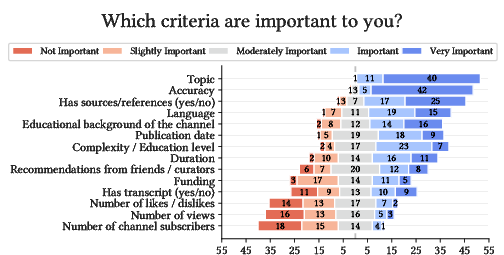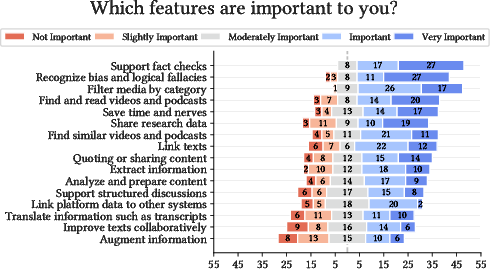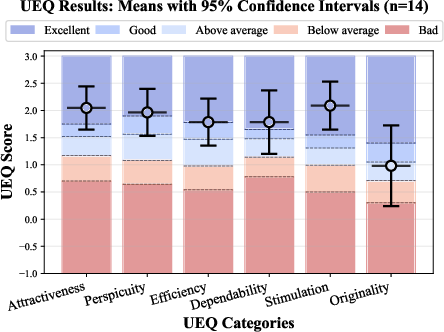- The paper introduces a novel digital library that integrates videos and podcasts into a FAIR science communication infrastructure.
- It outlines a systematic approach using stakeholder surveys, interviews, and a prototype to meet diverse user needs.
- The evaluation demonstrates excellent usability and potential to combat misinformation while enhancing public trust in science.
Introduction
The paper "SciCom Wiki" (2511.09248) introduces a novel digital library aimed at supporting the Science Communication Knowledge Infrastructure (SciCom KI) for videos and podcasts. This infrastructure seeks to address the growing challenge of misinformation prevalent in non-textual media by providing a centralized platform that facilitates the FAIR principles through collaborative efforts. The authors highlight the inadequacy of existing platforms to handle the scale of content while ensuring accuracy, trust, and accessibility. By surveying stakeholders and implementing a prototype system, the paper provides valuable insights into the requirements and solutions necessary for effective science communication in the digital age.
The need for SciCom Wiki arises from the fragmented nature of the existing Science Communication Knowledge Infrastructure, which struggles with scalability and integration of diverse media forms like videos and podcasts. Traditional Knowledge Infrastructures, such as Wikipedia and Wikidata, focus predominantly on textual data, failing to accommodate the nuances of audiovisual content. Videos and podcasts have emerged as popular mediums for science communication but are equally susceptible to misinformation. The authors highlight the necessity to unify these disparate efforts by creating a platform that ensures adherence to FAIR principles, therefore enhancing public trust and scientific literacy.

Figure 1: Total and clustered reported interest in our sample (n=53). The clusters indicate many participants are solely consumers, a second larger group can be classified as scientists and developers, a third as content creators and curators. Notably, almost every participant is interested as a viewer, often strongly.
Approach and Implementation
The paper outlines a systematic approach involving requirement elicitation from stakeholders, design, implementation, and evaluation of the proposed SciCom Wiki system. A survey of 53 participants, supplemented by 11 interviews, identified critical features to support various roles—viewer, researcher, teacher, content creator, curator, and developer—within the SciCom KI. These insights were translated into the design of a digital library, built upon Wikibase, that supports collaborative media processing, representation, and annotation.


Figure 2: Results of 53 participants assessing the importance of Sci KI media criteria (above) and features (below), ranked by their importance averaged over all responses.
The implemented system utilizes a combination of full-text and linked-data wikis, integrated via a user-friendly dashboard that facilitates data import, search, and curation. This architecture ensures the platform can handle the diverse and scalable demands of modern non-textual media, promoting participation from various stakeholders.
Evaluation and Results
A subsequent evaluation involving 14 participants assessed the system’s usability, effectiveness, and efficiency. Tasks designed to test the search capability demonstrated high user satisfaction and confirmation of the system’s ability to meet several identified needs effectively. The benchmark results from the User Experience Questionnaire (UEQ) indicated excellent usability across multiple scales, highlighting the platform's potential in facilitating robust science communication.

Figure 3: UEQ benchmark results across six UX scales. Notably, five of the means rank as "Excellent" and one "Above average": Originality. It has a high standard deviation (σ=1.29), with two participants ranking it negatively (-0.75, -1.5). Still, every aspect received overall positive feedback, confirming good or at least above average usability.
Discussion on Future Work
The paper acknowledges the limitations of the current implementation and emphasizes the need for further refinement and expansion. Future work should address comprehensive data protection measures, scalability of federated systems, and integration with other platforms. Enhancements in user engagement and collaboration, particularly across institutional boundaries, are deemed critical for fostering a robust SciCom KI.
Conclusion
The SciCom Wiki paper presents a promising framework for improving science communication through digital library solutions that emphasize the FAIR principles. The evaluation confirms the platform's efficacy in addressing identified needs, though further development is necessary to realize its full potential. The authors advocate for community and institutional collaboration to expand and refine the infrastructure, ensuring it can effectively combat misinformation and improve public trust in scientific discourse.
In conclusion, the SciCom Wiki stands as a significant step forward in handling the misinformation challenge posed by videos and podcasts, aligning with the broader goals of enhancing science communication and ensuring civic engagement.



